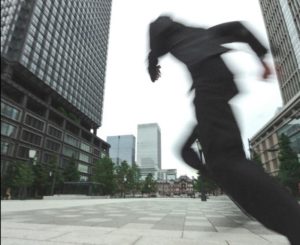Antonym:せいかい(seikai) vs. まちがい(machigai)
What is the difference between “せいかい(seikai) and まちがい(machigai)”? Which is used as the meaning of “correct”? After reading this, you would be answering this question. Let me introduce what their subtle differences are and how you correctly use them such as native speakers today!
せいかい (seikai)
Correct, Right / 正确 / 정답 / Đúng, chính xác
“せいかい(seikai)” means “Correct or Right” and which has been used as the meaning of “in agreement with the true facts”. The basic ways to use it are that “___はせいかいだ。(___ is correct.)”, etc. For instance, “これはせいかいだ。(This is correct.)”, “それはせいかいだ。(It is correct.)”, etc. Everyone could use “せいかい” as casual, polite and formal such as “これはせいかいだよ。(This is correct.)” as casual and “これはせいかいです。(This is correct.)” as polite and formal. Kanji of “せいかい” is “正解“.
\ Learn Japanese language online with a personal native teacher!/
Sample
三つ、正解だね。 (You’ve gotten three right.) (你做对了三道题。) (세 개, 정답이야.) (Đúng được 3 câu nhỉ.)


うーん、すべて正解に聞こえます。 (Hmmm, everything sounds correct to me.) (嗯,你说的没有问题!) (음, 전부 정답으로 들립니다.) (Ừ, tôi có thể nghe chính xác tất cả.)


どれが正解か分かりません。 (I’m not sure which is right.) (我不知道哪个是正确的。) (어느 것이 정답인지 모르겠습니다.) (Tôi không biết cái nào đúng.)


全問正解の人? (Who got all the answers correct?) (有谁全部答对的?) (다 맞은 사람?) (Ai trả lời đúng toàn bộ câu hỏi?)
まちがい (machigai)
Wrong, Incorrect / 错误 / 오답 / Sai
“まちがい(machigai)” means “Wrong / Incorrect” and which has been used as the meaning of “not correct or not true”. The basic ways to use it are that “___はまちがいだ。(___ is wrong/incorrect.)”, etc. For instance, “これはまちがいだ。(This is wrong/incorrect.)”, “それはまちがいだ。(It is wrong/incorrect.)”, etc. Everyone could use “まrちがい” as casual, polite and formal such as “これはまちがいだよ。(This is wrong/incorrect.)” as casual and “これはまちがいです。(This is wrong/incorrect.)” as polite and formal. Kanji of “まちがい” is “間違い”.
Sample


三つ、間違いだね。 (You’ve gotten three wrong.) (你错了三道题。) (세 개, 틀렸네.) (Sai ba câu nhỉ.)


うーん、すべて間違いに聞こえます。 (Hmmm, everything sounds incorrect to me.) (你似乎都说错了。) (음, 전부 오답으로 들립니다.) (Ừ, tôi nghe sai toàn bộ.)


どれが間違いか分かりません。 (I’m not sure which is wrong.) (我不知道哪个是错的。) (어느 것이 틀린 것인지 모르겠습니다.) (Tôi không biết cái nào sai.)


全問間違いの人? (Who got all the answers incorrect?) (有谁全答错的?) (다 틀린 사람?) (Ai sai toàn bộ các câu hỏi?)
\ Learn more! /









Comments